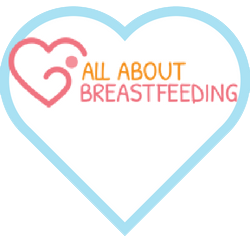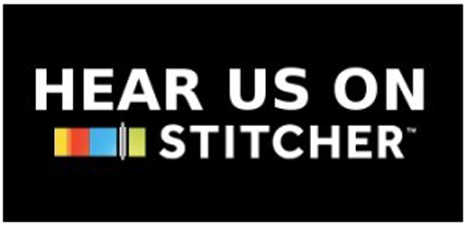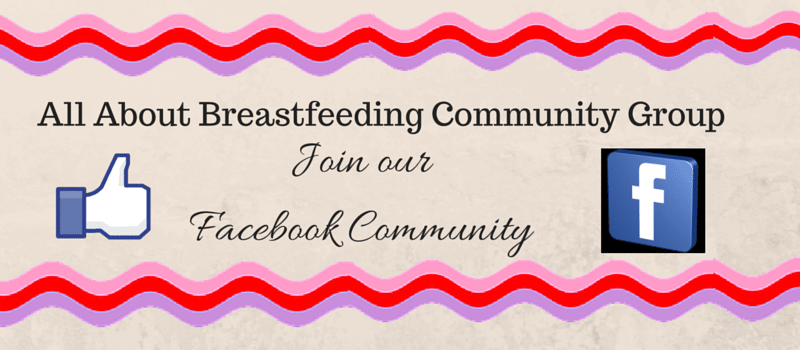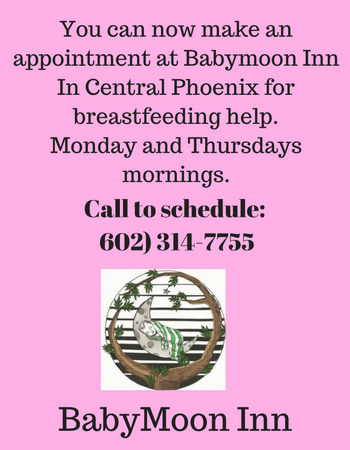Episode 136 Breastfeeding and Medication
Have you ever been told you need to stop breastfeeding because you need medical testing or a medication? Or told that you cannot receive treatment until you are done breastfeeding? The good news is that most medications are compatible with breastfeeding, and for those few medications that are a safety issue there are usually acceptable substitutions. Although mothers are frequently told they need to stop breastfeeding (temporarily or permanently) to take a medication, this is rarely necessary.
I am definitely not referencing every medication, however, I know this can be very confusing when during pregnancy you are told that you cannot take a medication as it is not safe for your baby growing in utero & then you are told that there are so many medications you can take while breastfeeding. Sometimes even the same medication.
Very simply put, the way medications are passed on to the baby during pregnancy and during lactation differ. The gestational age and doseage during pregnancy is taken into consideration. The infants age and doseage is considered during lactation. At one point, your baby may be old enough to handle a certain medication taken at a certain doseage and for a period of time. However, the same medication, duration and dose would not be safe as it crosses the placenta and affects the baby more actively in utero.
So, yes, all medications need to stand alone and be checked for safety separately. Which is fine! I am happy our HCP are on the ball with this. However, what happens sometimes is that sometimes the fear is so great that moms are told across the board, let’s err or safety and assume this is not safe for your baby. Blanket statements like this drive me insane because to switch a baby to formula or a mom to pumping and dumping, may not be safe for either one and this needs to be taken into consideration.
You all know that I get my panties all up in a twist when horrible myths are perpetuated and they have a negative effect on moms and breastfeeding. Well, this business of moms being given wrong, outdated, inaccurate information about medications and their milk and safety with breastfeeding, well this is one of those times. I just can’t help myself. When I learn of a mom that pumped and dumped her milk and gave her baby formula because she was told the medication she was taking was not compatible with breastfeeding, I just go kind of insane.
Particularly when I find out that the medication mom was told was not safe for her baby, when it is a medication that is deemed safe for infants and in fact, is prescribed to infants. Now, babies health and other circumstances may need to be taken into consideration, but just think about this. A mom was told she would need to pump and bottlefeed for 3 days and give her baby formula, for a medication that is widely given to babies. This does not make sense and at the very least, warrants a conversation with your babies physician.
When we look at safety, we are also taking into consideration not only the amount of the meds that get through to the milk, but perhaps it is safe and will not cause the baby harm, however, it is harmful to the milk volume as it may cause it to drop a little or a lot. I see this a lot in my practice, where moms are told that a medication is safe. So now here I am whining about how angry I am that she is being told a medication is safe. Safe as in not harmful to baby, but not safe if it lowers her supply. If the mother is not told this, and her supply drops, she has no reason why and becomes fearful and frustrated and often accepts that she is just “drying up.”
Okay, so let’s get into this subject further:
.Here are some things to take into consideration:
Known family allergies. The age and weight of your baby. The overall health of your baby. Meds that are safe for a full term, may not be for a premature baby. Meds that are safe for a healthy baby, many not be safe for a baby with kidney issues.
So, each mother and baby need to find out the info as it relates specifically to you.
My feelings about when mom is told to pump and dump. What is the Big Deal Anyway?
The big problem with this is that this information can have several affects on the breastfeeding mom and her baby.
Let’s say her baby has never had a bottle before or she has not pumped.
You are giving a mom extra work to do and perhaps even an expense of buying a pump that she might not have otherwised have needed. She is now needing to spend the time pumping. spend the time orientating her baby to a bottle which may not have happened otherwise. This can be stressful to both mom and baby.
If she has enough of her milk, she does not have to introduce formula, but if she does not have her milk or donor milk, she is now introducing formula to her babies system and for some babies, this foreign food can cause them a problem. Immediate tummy upset, vomiting, allergic reaction. And, it may not have been necessary to do so.
If it is short term, the baby may have no problem going back to the breast.
If it is for days, the baby may start to show a preference to the bottle and it may be a lot of hard work and frustration on both parts going back to the breast. And, it may not have been necessary to do so.
She may have problems with round the clock pumping and her supply is decreasing. Noone ever told the mom that if she notices t his happening, or to prevent this from happening, she may want to consider using a hospital grade pump. Hand expression can also work well for some moms who are not doing well with a pump.
What about prescribing medications that has the potential to drop her supply? At the very least, she needs to be told that this is a possibility because if this does happen, she at least has a heads up. I find that moms tend to look at everything else but the medication that she was taking as the culprit. She can lose valuable time when she does not connect the dots. If she did, she may choose to discontinue the mediation or find an alternative one in an effort to save her milk supply.
Common medications and circumstances:
According to world renowned researcher – Thomas Hale, RPh, PhD (Medications and Mothers’ Milk 2014, p. 7-12): “It is generally accepted that all medications transfer into human milk to some degree, although it is almost always quite low. Only rarely does the amount transferred into milk produce clinically relevant doses in the infant… Most importantly, it is seldom required that a breastfeeding mother discontinue breastfeeding just to take a medication. It is simply not acceptable for the clinician to stop lactation merely because of heightened anxiety or ignorance on their part. The risks of formula feeding are significant and should not be trivialized. Few drugs have documented side effects in breastfed infants, and we know most of these.”
Dental procedures and surgery is fairly common for pp moms and one that I see a lot of poor information being given. Both x-rays and novocaine (and other drugs used for local anesthesia, such as bupivacaine and lidocaine) are considered to be compatible with breastfeeding. Most medications used for oral and IV sedation are considered compatible with breastfeeding.
Nitrous oxide (laughing gas) sedation is also considered to be compatible with breastfeeding. It is virtually insoluble in the bloodstream, which means it goes from your brain to your lungs to the room air immediately after you stop breathing it in. Per Hale, “it is rapidly eliminated from the body due(within minutes). A rapid recovery generally occurs within 3-5 minutes… Ingestion of nitrous oxide orally via milk is unlikely.”
A mother who has wisdom tooth surgery should not need to interrupt breastfeeding at all (except during the surgery, of course). To minimize baby’s exposure (and increase mom’s comfort), mom can nurse just before she goes in for the procedure. There is no need to wait on breastfeeding afterwards or to pump and dump — mom can nurse as soon as she feels alert enough to hold baby.
New mothers are prone to getting breast infections and are sometimes told they need to pump and dump because of the medication they are given. If you find out that the meds you were prescribed are not safe, you should ask for an alternative one that is fine as there are many that are compatible.
Another medical issue that new mothers are prone to are urinary tract infections. Here again, I find that lots of moms are prescribed a medication that may not be safe for breastfeeding, but there are several medications they can take that are safe for breastfeeding.
With reference to pain medication anesthesia and analgesics and moms undergoing surgery during their breastfeeding days. One of the first things you should ask is: The drugs that are being used, are these the same ones that are used when moms have a cesarean section? If the answer is yes, it is very likely that you will not need to pump and dump. Don’t laugh. I see this happening all the time. Moms being told to pump and dump when the same meds are used for c/sec and moms are not instructed to pump and dump on the maternity unit when breastfeeding. It just does not make sense.
Another one of my breastfeeding peeves: Ask if the medication you are being given is one that is safe and given to infants? If it is, then it is quite likely it is safe for you to take and continue breastfeeding. The dose and age of your baby needs to be taken into consideration, however, many meds you take, only 1% will get to the baby.
The following are good sources for information on medications and breastfeeding:
• The InfantRisk Center (1-806-352-2519), headed by Dr. Thomas Hale in the US, has a phone helpline and additional information on medication use during pregnancy and breastfeeding.
• The LactMed Database, a free online database maintained by the National Library of Medicine in the US, is a wonderful online resource for information on breastfeeding and medications. If your health care provider does not know about this resource, spread the word! They also have a free smartphone app that is very useful.
• Drugs in Breastmilk (0844 412 4665), from The Breastfeeding Network in the UK, has a phone helpline and additional information on medication in breastfeeding mothers.
• Talking to baby’s health care provider (in addition to your own doctor) is also a good idea. Baby’s doctor will generally know more about the effects of medications on infants and young children, and whether a medication is typically given directly to infants or young children. Your baby’s doctor will also be aware of any particular health concerns that your baby has with respect to a particular medication.
The following are NOT good sources for information on medications and breastfeeding:
• It is not appropriate to use pregnancy risk categories (A,B,C,D,X…) to determine the risk of a drug to a breastfeeding mother and her baby, since the entry of drugs into human milk is quite different than the entry of drugs across the placenta during pregnancy.
• t is not uncommon to see doctors using the Physicians Desk Reference for information on medications and nursing. This reference contains the package inserts from the pharmaceutical manufacturers. Almost across the board, they indicate that each medication should not be taken while pregnant or breastfeeding. The warning statements they use are designed to protect themselves from lawsuits. The information in the PDR is based on the manufacturer’s studies on the product, but not other studies that have been done. In general the manufacturers have done no studies on lactating women, and thus say that there is no information (even if studies have been done by others).
When considering a medication (including herbal and other “natural” preparations) here are several factors to take into account:
The answers are not the same for everyone.
here are some things to take into consideration:
So, each mother and baby need to find out the info as it relates specifically to you.
• Does the mother need this medication/treatment right now, or is it something that she does not need or can easily postpone until her child is older?
• How old is the breastfeeding child? Is s/he healthy? Premature babies, newborns, and babies with health problems require somewhat more caution when it comes to the medications that the mother is taking; healthy older babies and toddlers are generally at a lesser risk since their bodies can metabolize medications more easily.
• How much breastmilk does the child get? A child who is getting smaller amounts of breastmilk (a newborn in the early days before mother’s milk volume naturally increases, a baby or child who is eating other foods in addition to breastmilk and breastfeeds less often, etc.) will also be getting less of any medication that passes into breastmilk.
• Is the medication in question one with a record of safely being given directly to babies and young children? The amount of the medication that passes into breastmilk will normally be significantly lower than that given directly to young children.
• Avoid medications known to affect milk production.
• Temporary weaning is a risk to the mother’s milk supply. Milk supply may be compromised since pumps do not provide the same stimulation to supply as does a nursing baby. For the rare times when temporary weaning is needed, see this information on maintaining milk supply when baby is not nursing.
• Temporary weaning comes with a risk that baby will not go back to the breast. Some babies have a hard time returning to breastfeeding after temporary weaning, and unfortunately we do not know ahead of time which babies will have problems.
• There are known risks of formula feeding, including allergy, increased illness, etc. Many of the risks of formula feeding are not apparent for many years.
• e-lactancia,http://e-lactancia.org/ a free online database maintained by APILAM (Association for Promotion and Cultural and Scientific Research of Breastfeeding) in Valencia, Spain, is another wonderful online resource with information on breastfeeding and medications, phytotherapy (plants), homeopathy and other alternative products, cosmetic and medical procedures, contaminants, and maternal/infant diseases. Information is available in both Spanish and English.
• Läkemedel och amning, – Loch – ah – meedil – ohmling from the Drug Therapeutic Committee and the Public Healthcare Services Committee Administration of Stockholm County Council, Sweden, has a free online database with information on breastfeeding and medications.
Link:
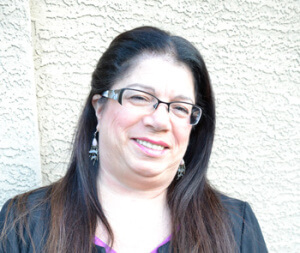 Lori Jill Isenstadt, IBCLC is a huge breastfeeding supporter. She has spent much of her adult life working in the maternal health field. Once she became turned on to birth and became a childbirth educator, there was no stopping her love of working with families during their childbearing years. Lori became a Birth doula and a Postpartum doula and soon became a lactation consultant. She has been helping moms and babies with breastfeeding for over 25 years. Lori founded her private practice, All About Breastfeeding where she meets with moms one on one to help solve their breastfeeding challenges. She is an international speaker, book author and the host of the popular itunes podcast, All About Breastfeeding, the place where the girls hang out. You can reach Lori by email at: aabreastfeeding@hotmail.com or contact her via her website: allaboutbreastfeeding.biz/contact
Lori Jill Isenstadt, IBCLC is a huge breastfeeding supporter. She has spent much of her adult life working in the maternal health field. Once she became turned on to birth and became a childbirth educator, there was no stopping her love of working with families during their childbearing years. Lori became a Birth doula and a Postpartum doula and soon became a lactation consultant. She has been helping moms and babies with breastfeeding for over 25 years. Lori founded her private practice, All About Breastfeeding where she meets with moms one on one to help solve their breastfeeding challenges. She is an international speaker, book author and the host of the popular itunes podcast, All About Breastfeeding, the place where the girls hang out. You can reach Lori by email at: aabreastfeeding@hotmail.com or contact her via her website: allaboutbreastfeeding.biz/contact 
Submit a comment
your email address will not be published
